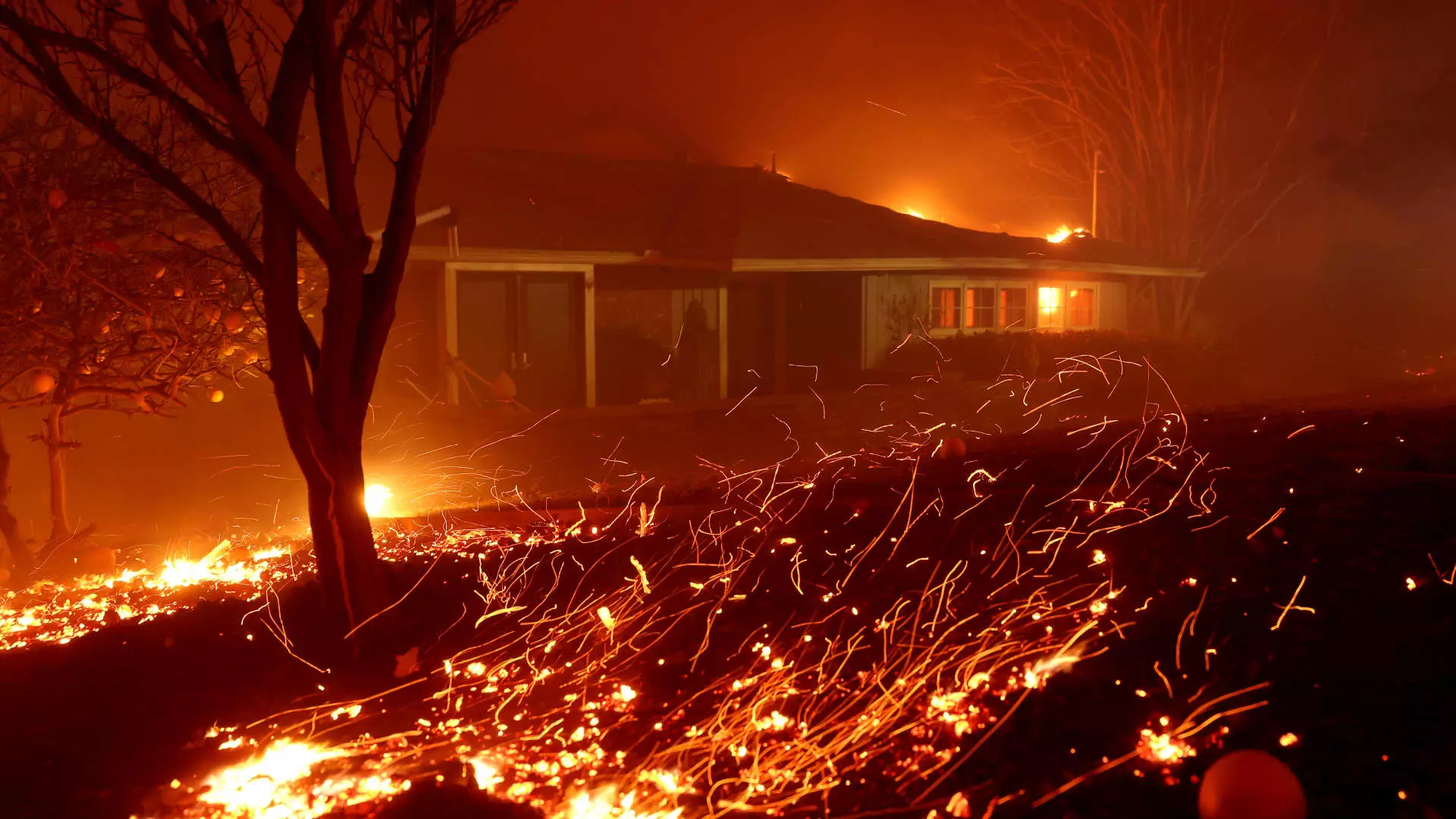As we grapple with extreme weather events globally, the ramifications for the real estate market are becoming distressingly clear. The recent Los Angeles wildfires serve as a stark reminder of the escalating climate crisis and its tangible effects on property value and insurance costs. Analysts and climate risk experts are now sounding alarms over a looming crisis: the potential devaluation of U.S. homes tied to an inability of insurance markets to absorb growing climate-related risks.
While it may be premature to tally the full economic repercussions of such disasters, experts have long anticipated a steep increase in insurance premiums—a vital component of home ownership. A sweeping analysis by First Street suggests that within the next few decades, a staggering 84% of U.S. homes will likely experience devaluation due to climate risks, presenting a combined loss of approximately $1.47 trillion by 2055. This prediction is not merely speculative; it arises from an inherent shift in how climate risks are being factored into both property valuation and insurance underwriting.
In fact, insurance costs are projected to soar by an average of 25% over the next 30 years. Alarmingly, 14% of this surge stems from a previously underestimated risk, while the other 11% can be attributed to escalating climate threats. Such financial pressures will inevitably trickle down to homeowners—where rising costs detrimentally impact property values. Specifically, certain counties—particularly in Texas, Florida, and Louisiana—may see home values plummet by as much as 50%.
Organizations like DeltaTerra Capital are spearheading initiatives to quantify and mitigate financial risks related to climate change. Their founder, Dave Burt, warns that within the next five years, about 20% of U.S. homes may suffer from devaluation induced by climate influences. Emphasizing that insurers have previously remained unincreased in their pricing amid rising extreme weather, he suggests a paradigm shift is now unfurling.
Burt parallels current trends with the subprime mortgage crisis, predicting that the convergence of rising insurance costs and declining home values could catalyze a significant market correction—perhaps as deep and swift as that witnessed during the Great Recession. He estimates potential declines of up to 30% in certain markets over the next five years.
Political Insights and Legislative Concerns
The implications of these trends have captured the attention of policymakers as well. Senator Sheldon Whitehouse highlighted that the greatest immediate danger of economic collapse lies within the insurance sector, compounded by natural disasters spreading rapidly across the nation. His warnings underline the intertwined relationship between natural disasters, policy frameworks, and the housing market.
The escalating climate risk is forcing property assets to recalibrate to find a new market equilibrium. Critics argue that the current strategies guiding federal mortgage giants such as Fannie Mae and Freddie Mac do not adequately account for climate risk at the property level. By failing to incorporate such vital considerations in their underwriting processes, the mortgage giants inadvertently foster an environment ill-prepared for emerging realities.
The lingering aftermath of climate-related disasters often leads to a surge in foreclosures. Studies have shown that following events like Hurricane Sandy, foreclosures in affected regions can skyrocket. This trend threatens to exacerbate an already precarious housing climate, where potential homebuyers and investors remain wary of purchasing properties in risk-prone areas.
As the realization of these compounded stresses looms large over homeowners from coast to coast, mortgage markets must adapt. Experts, including DeltaTerra’s Burt, advocate for a proactive approach. He suggests that financial stakeholders implement strategies to hedge against climate-induced risks—perhaps through diversification and targeting less vulnerable assets.
Despite the urgency of addressing these challenges, recent legislative actions reveal a troubling disconnect. For instance, the Trump administration halted the implementation of the Federal Flood Risk Management Standard—a critical framework designed to bolster the resilience of infrastructure against future flooding events. This decision poses long-term risks that could further entrench vulnerabilities within communities reliant on such protections.
As we venture further into an age defined by climate uncertainty, the nexus between natural disaster risk, insurance costs, and real estate values will only grow in significance. As homeowners, investors, and policymakers confront these challenges, the call for a recalibrated approach to understanding and managing climate risk is more pressing than ever. The implications of ignoring these urgent matters could result in financial doom, leaving lasting scars on the American housing market and economy.

